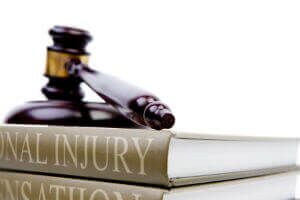 In most personal injury cases, the reasonable person standard is what is used to determine if negligence has occurred and whether that negligence is connected to the accident and any resulting injuries.
In most personal injury cases, the reasonable person standard is what is used to determine if negligence has occurred and whether that negligence is connected to the accident and any resulting injuries.
Our Windsor personal injury lawyers have helped many injury victims over the years prove negligence and establish liability in these cases. To find out if this standard applies to your situation, speak with our legal team during a free consultation.
Defining a Reasonable Person in a Negligence Case
Negligence occurs when a person acts or fails to act with the same degree of care a reasonable person would have used in the same situation. Under the law, the “reasonable person” (sometimes referred to as a “reasonably prudent person”) is a hypothetical person, and the defendant’s actions are compared to what the reasonable person would or would not have done in the incident in question.
This is an objective standard, which the defendant’s actions are compared against. When making this comparison, outside factors are not considered – it purely examines just the specifics of the claim. Characteristics of the defendant do not weigh on the matter, such as his or her maturity, intelligence, temperament or other attributes that could cause the defendant to act or fail to act in the situation at hand.
What Would a Reasonable Person Do in Certain Situations?
When determining if negligence did or did not occur in a personal injury case, a jury must determine what a reasonably prudent or careful person would or would not have done when placed under the same circumstances as the defendant.
For example:
- A reasonable person would follow traffic laws. If the defendant’s failure to stop at a stop sign or traffic light caused the accident leading to the plaintiff’s injuries, the defendant could be found to have been negligent in the matter according to the reasonable person standard.
- A reasonable person would regularly inspect conditions on his or her property for safety and take action to remedy dangerous conditions found on the property. If the defendant failed to notice dangerous conditions on his or her property or failed to take action to correct known dangers within a reasonable amount of time, he or she could be found negligent.
- A reasonable person would leash his or her dog while walking in a public area. Even if it is not legally required, a reasonable person would still be expected to use a leash because it is a precaution taken to prevent an attack or unwanted contact with other individuals. If the defendant failed to leash his or her dog, he or she could be found negligent under this standard.
Exceptions to the Reasonable Person Standard
In cases involving children, children are generally not held to the same reasonable person standard that an adult would be. Instead, a child’s actions or lack thereof are compared to that of how a child of the same age and experience would or would not act in the same situation. Children are held to a different standard because they are limited in experience and may not yet be able to understand the consequences of their actions.
There are certain situations where a child would be held to the same reasonable person standard as an adult would be under the same circumstances. When the defendant is a minor who engages in an adult activity under the circumstances in question, his or her actions or lack thereof may be held to the reasonable person standard as an adult would be. These situations may include driving a vehicle or playing a high-impact sport.
Also, if the defendant is a person with advanced training, he or she may not be held to the same reasonable person standard that the average adult would be. Medical professionals such as doctors, nurses or EMTs (emergency medical technicians) would be held to a higher standard of care.
Reach Out to Our Firm to Learn More
If you were injured due to negligence that a reasonable person would not have caused, you may be eligible to pursue compensation for your medical bills, lost wages, and pain and suffering, among other damages. We know how to investigate accidents to determine if negligence has been committed.
Schedule a free, no-obligation consultation to learn more about your legal options. We charge no upfront fees and payment is only due if we recover compensation on your behalf.
Call Greg Monforton & Partners today at (866) 320-4770.